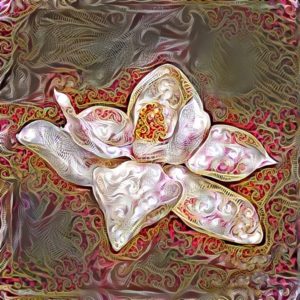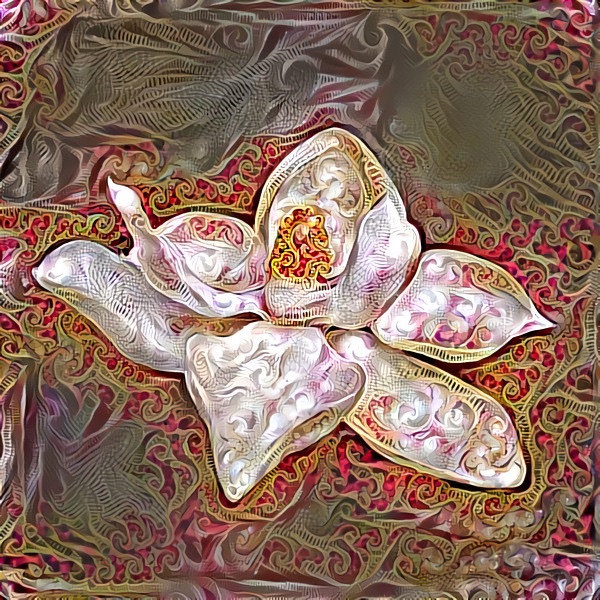 SAUCHA (PURITY). Purity of body externally is promoted by good habits like bathing, brushing teeth, etc. Physical-Internal purity is realized through the practice of Asana (Postures that tone the body and remove toxins and impurities as well and eliminating tension and stress), Pranayama (Breathing exercises that cleanse and aerate the lungs, oxygenate the blood and purify the nerves), and good eating habits. More important is Mental-Internal purity. This is achieved by ridding the body of disturbing emotions like hatred, passion, delusion, anger, lust, pride and greed through the practice of Bhakti (adoration). Still more important is the cleansing of the intellect of impure thoughts which can be burned off in the fire of Svadhyaya (the study of the Self).
SAUCHA (PURITY). Purity of body externally is promoted by good habits like bathing, brushing teeth, etc. Physical-Internal purity is realized through the practice of Asana (Postures that tone the body and remove toxins and impurities as well and eliminating tension and stress), Pranayama (Breathing exercises that cleanse and aerate the lungs, oxygenate the blood and purify the nerves), and good eating habits. More important is Mental-Internal purity. This is achieved by ridding the body of disturbing emotions like hatred, passion, delusion, anger, lust, pride and greed through the practice of Bhakti (adoration). Still more important is the cleansing of the intellect of impure thoughts which can be burned off in the fire of Svadhyaya (the study of the Self).
SANTOSA (CONTENTMENT). This Niyama must be cultivated. There will always be differences among Men. This is fine in and of itself. But when it becomes a distraction to you the mind cannot concentrate or become one-pointed and thus it is robbed of it’s peace. There is contentment and peace when the flame of the spirit does not waver in the wind of desire.
TAPAS (AUSTERITY). A conscious effort to achieve ultimate union with the Divine and to burn up all desires which stand in the way of this goal. Burning effort under all circumstances to achieve a specific goal. There are three types of tapas relating to body, speech and mind. Non-violence is one example of the first category. Speaking truth and using words that do not offend are two of the tapas of speech. Developing a mental attitude whereby one remains tranquil and balanced in joy and sorrow and retains self control are tapas of the mind. Through tapas the yogi gains courage and wisdom, integrity, straightforwardness and simplicity.
SVADHYAYA (STUDY). “Ignorance has no beginning, but it has an end. There is a beginning, but no end to knowledge.” Svadhyaya is the study of the great religious books of the world, of all faiths, that the student may come to understand his own faith better.
ISHVARA PRANIDHANA (WORSHIP OF GOD). During the course of seeking enlightenment one must encounter the “dark night of the soul”. This is a period when you come to question all that you thought you knew and you find yourself powerless and lost amid your desires and fears. Only now, at the darkest hour can true worship be discovered. In bhakti the mind, the intellect, and the will are surrendered to the Lord and the seeker prays: “I do not know what is good for me. Thy will be done.” When the feeling of ‘I’ and ‘mine’ disappears, the individual soul has reached full growth.
There once lived a man of great knowledge. His reputation as a scholar spread throughout the land and still he longed for recognition. And so it came to pass that this scholar sought out a Zen Master in a nearby monastery asking to be shown the true nature of the universe. But part of him wanted and expected the Zen Master to acknowledge his wisdom. The scholar was granted an interview and seated at a low wooden table. The Zen Master entered the room in silence, placed a tea cup before the scholar and proceeded to fill it with tea. The cup filled up and began spilling over the table, and still the Zen Master continued pouring. The scholar cried out in alarm “My cup is overflowing!” The Zen Master answered “Precisely!” and so ended the interview.
I used the story of the Tea Cup to demonstrate that knowledge without humility is in fact a handicap to learning. Complete beginners start with an open mind and listen to every word because it is all new to them. They know they are ignorant and so they do not fear to ask questions. The experienced student has heard most of it before, and not listening, misses the little that he did not already know, and so the beginner passes him by. A full cup can receive no tea. Therefore, when breathing empty your lungs, when learning empty your mind; when loving empty your heart; and when worshiping empty your soul.
2 Comments
-
I learned about the Yam and Niyam during my Teacher Training Course with Arhanta Yoga. Ever since I am much more aware of the thing I do and why I do them. Practicing Yam and Niyam is definitely necessary to become more aware and to live the yogic life.
-
If you wuld like to improve your knowledge only keep visiting this web page and be updated wkth the most rcent news posted here.






